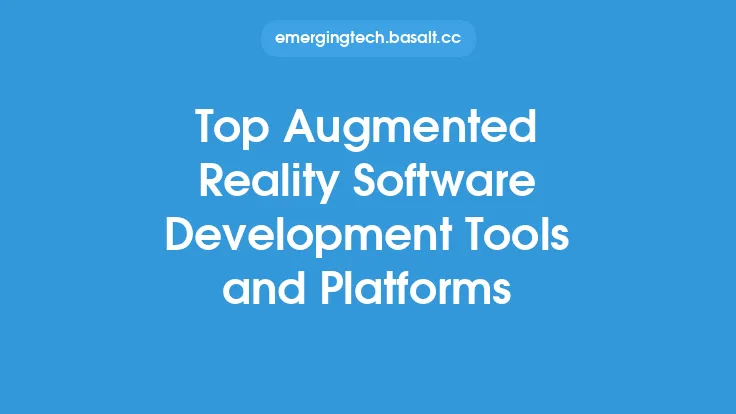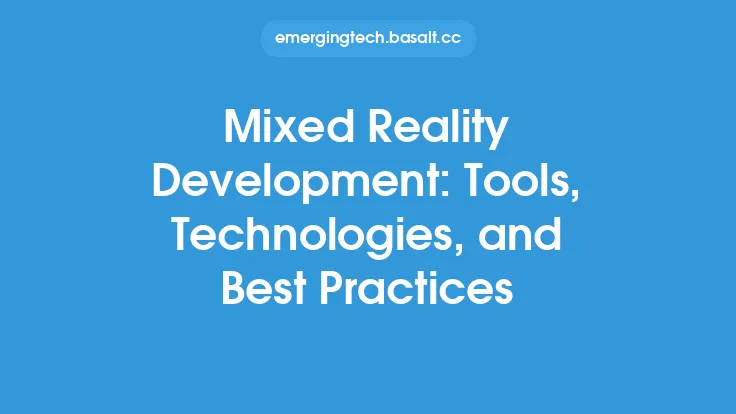The development of quantum software is a rapidly evolving field, with new tools, frameworks, and libraries emerging to support the creation of quantum algorithms and applications. As quantum computing continues to advance, the need for robust and efficient software development tools has become increasingly important. In this article, we will explore the current state of quantum software development, highlighting the key tools, frameworks, and libraries that are driving innovation in this field.
Overview of Quantum Software Development
Quantum software development involves the creation of programs that can run on quantum computers, which are designed to solve specific problems that are difficult or impossible for classical computers to solve. Quantum algorithms, such as Shor's algorithm and Grover's algorithm, are used to solve problems in cryptography, optimization, and simulation, among other areas. However, developing quantum software is a complex task, requiring a deep understanding of quantum mechanics, linear algebra, and programming principles.
Quantum Development Frameworks
Several quantum development frameworks have emerged in recent years, providing a structured approach to quantum software development. These frameworks offer a range of tools and libraries that support the development, testing, and deployment of quantum algorithms. Some of the most popular quantum development frameworks include:
- Qiskit: An open-source framework developed by IBM, Qiskit provides a comprehensive set of tools for quantum software development, including a quantum circuit simulator, a quantum compiler, and a range of pre-built quantum algorithms.
- Cirq: Developed by Google, Cirq is a software framework for near-term quantum computing, providing a range of tools and libraries for developing and testing quantum algorithms.
- Q#: A high-level programming language developed by Microsoft, Q# provides a simple and intuitive way to develop quantum algorithms, with a range of libraries and tools supporting quantum software development.
Quantum Libraries and Toolkits
In addition to quantum development frameworks, a range of quantum libraries and toolkits are available to support specific aspects of quantum software development. These libraries and toolkits provide pre-built functions and classes that can be used to develop quantum algorithms, simulate quantum systems, and optimize quantum circuits. Some examples of quantum libraries and toolkits include:
- Qiskit Aer: A high-performance simulator for quantum circuits, Qiskit Aer provides a range of tools for simulating and testing quantum algorithms.
- Cirq Contrib: A collection of community-developed libraries and tools for Cirq, Cirq Contrib provides a range of additional functionality for quantum software development.
- QDT: A quantum development toolkit developed by Rigetti Computing, QDT provides a range of tools and libraries for developing and testing quantum algorithms.
Quantum Circuit Synthesis and Optimization
Quantum circuit synthesis and optimization are critical components of quantum software development, involving the creation and optimization of quantum circuits to solve specific problems. Several tools and libraries are available to support quantum circuit synthesis and optimization, including:
- Qiskit Transpiler: A tool for transpiling quantum circuits into a format that can be executed on a quantum computer, Qiskit Transpiler provides a range of optimization techniques to minimize circuit depth and reduce error rates.
- Cirq Optimization: A range of optimization tools and techniques for Cirq, Cirq Optimization provides a range of methods for reducing circuit depth and improving quantum algorithm performance.
Quantum Software Development Challenges
Despite the rapid progress in quantum software development, several challenges remain, including:
- Quantum noise and error correction: Quantum computers are prone to noise and errors, which can quickly accumulate and destroy the fragile quantum states required for quantum computing.
- Quantum algorithm development: Developing quantum algorithms that can solve real-world problems is a complex task, requiring a deep understanding of quantum mechanics and programming principles.
- Quantum software testing and validation: Testing and validating quantum software is a challenging task, requiring specialized tools and techniques to verify the correctness of quantum algorithms.
Future Directions
The future of quantum software development is exciting and rapidly evolving, with new tools, frameworks, and libraries emerging to support the creation of quantum algorithms and applications. As quantum computing continues to advance, we can expect to see significant improvements in quantum software development, including:
- Improved quantum development frameworks: Next-generation quantum development frameworks will provide even more comprehensive tools and libraries for quantum software development, supporting the creation of more complex and sophisticated quantum algorithms.
- Increased focus on quantum software testing and validation: As quantum software development becomes more widespread, there will be an increasing need for robust testing and validation tools to verify the correctness of quantum algorithms.
- Growing adoption of quantum computing: As quantum computing becomes more mainstream, we can expect to see a growing adoption of quantum software development tools and frameworks, driving innovation and advancement in a range of fields, from cryptography to optimization and simulation.





